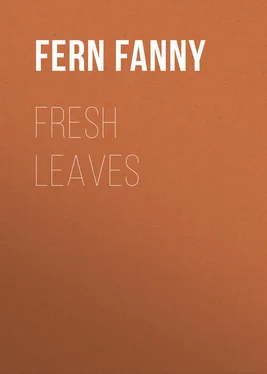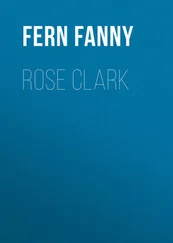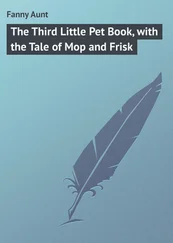Fanny Fern - Fresh Leaves
Здесь есть возможность читать онлайн «Fanny Fern - Fresh Leaves» — ознакомительный отрывок электронной книги совершенно бесплатно, а после прочтения отрывка купить полную версию. В некоторых случаях можно слушать аудио, скачать через торрент в формате fb2 и присутствует краткое содержание. Жанр: foreign_antique, foreign_prose, на английском языке. Описание произведения, (предисловие) а так же отзывы посетителей доступны на портале библиотеки ЛибКат.
- Название:Fresh Leaves
- Автор:
- Жанр:
- Год:неизвестен
- ISBN:нет данных
- Рейтинг книги:5 / 5. Голосов: 1
-
Избранное:Добавить в избранное
- Отзывы:
-
Ваша оценка:
- 100
- 1
- 2
- 3
- 4
- 5
Fresh Leaves: краткое содержание, описание и аннотация
Предлагаем к чтению аннотацию, описание, краткое содержание или предисловие (зависит от того, что написал сам автор книги «Fresh Leaves»). Если вы не нашли необходимую информацию о книге — напишите в комментариях, мы постараемся отыскать её.
Fresh Leaves — читать онлайн ознакомительный отрывок
Ниже представлен текст книги, разбитый по страницам. Система сохранения места последней прочитанной страницы, позволяет с удобством читать онлайн бесплатно книгу «Fresh Leaves», без необходимости каждый раз заново искать на чём Вы остановились. Поставьте закладку, и сможете в любой момент перейти на страницу, на которой закончили чтение.
Интервал:
Закладка:
CHAPTER III
“I have a great mind to go to bed,” said Susy Wade, yawning; “I’m not sleepy, either, but I don’t know what do do with myself; there’s that tiresome Mr. Doe down stairs – he croaks, and croaks, and croaks, till I feel almost as sick as he pretends to. Now he will keep mother nursing up his rheumatism, as he calls it, till ten o’clock, when he is no more sick than she is, nor half so much; mother never complains when any thing ails her; but I am not like mother; I am not patient a bit. Were it not for mother, Neddy, I should like to sail way off across the ocean, and never come back; I get so tired here at home, and I know she does, too, though she never says any thing; sometimes she sighs such a long sigh, when she thinks nobody hears her; I should rather she would cry outright; it always makes me feel better to have a good cry. I wish that our father was like Carey Hunt’s father.”
“So do I,” said Neddy, fixing his humming-top – “so do I – they have such fun there. Tom told me that his father played games with them evenings, and showed them how to make kites, and brought them home story-books, and read them aloud, and sometimes the whole family go out together to some place of amusement. I wonder what makes our father so different from Tom Hunt’s father? Tommy always runs down street to meet his father when he comes home, and tells him what has happened on the play-ground; I wonder why our father never talks to us about such things? I wonder how father felt when he was a boy – don’t you suppose he ever played?”
“I don’t know,” said Susy, mournfully; “I’m only fifteen, but I mean to get married just as soon as I can, and then I won’t have such a gloomy house, and you shall come and live with me, Neddy.”
“But mother – ” said Neddy.
“O, mother shall come to see us all the time,” said Susy; “won’t we have fun?”
“But perhaps your husband will be a sober man, like father, and won’t want company, only people like Mr. Doe.”
“But my husband will be young, you little goose,” said Susy.
“Well – wasn’t father young when mother married him?” said the persistent Neddy, whirling off his top.
“I suppose so,” said Susy, with a sigh, “but it don’t seem as if he ever was. Where’s the Arabian Nights, Neddy, that you borrowed of Tom Hunt? let’s read a story.”
“Father made me carry it back,” said Neddy; “he said it was nonsense, and I shouldn’t read it.”
“That’s just why I like it,” said Susy; “of course, nobody believes it true – and I’m so tired of sense! Isn’t there any thing up in the book-rack there, Neddy?”
“I’ll see,” said Neddy, stretching his neck up out of his clean white collar – “I’ll see – here’s Moral Philosophy, Key to Daboll’s Arithmetic, Sermons by Rev. John Pyne, Essays by Calvin Croaker, Guide to Young Wives, Rules for Eating, Walking and Talking, Complete Letter Writer, Treatise on Pneumatics, Buchan’s Domestic Medicine. Which will you have?” asked Neddy, with a comical whine.
“Hush!” said Susy, “there’s father’s step.”
Mr. Wade had come up to get his soft lamb’s-wool slippers for Mr. Doe, that gentleman having experienced a chill in his left toe joint.
“Playing top,” said he, contemptuously, looking at Neddy; “at your age, sir, I was wheeling stone for a mason, in the day-time, and studying arithmetic evenings. Where’s your Daboll, sir? Study your pound and pence table; that’s what’s to be the making of you; how do you expect to become a man of business without that? You’ll never drive a good bargain – you’ll be cheated out of your eye-teeth. Get your Daboll, sir, and Susy, do you hear him say it. Tops are for babies, sir; a boy of your age ought to be almost as much a man as his father. How should I look playing top? God didn’t make the world to play in.” And Mr. Wade and his lamb’s-wool slippers slipped down stairs.
“He didn’t make it for a work-shop either,” thought Susy, as she took down the offensive Daboll.
They to whom the word father comprises all that is reverent, tender, companionable and sweet, may refuse to recognize the features of this portrait as a true likeness of the relation for which it stands; they may well doubt – they whose every childish hope and fear was freely confided to a pitying, loving, sympathizing heart – they whose generous impulses were never chilled by the undeserved breath of suspicion and distrust – they whose overflowing love was never turned back in a lava tide to devastate their fresh young hearts – happy they for whom memory daguerreotypes no such mournful picture! Still, let them not for that reason doubt, that through the length and breadth of the land, are men and women who look back sorrowing on what they might have been, but for their blighted childhood !
“Blessed night!” the words often fell from Mrs. Wade’s lips, as she closed her chamber-door, and, laying her weary head upon her pillow, sought oblivion in sleep.
“Blessed night;” the children did not hear it, for whose sakes she often repressed the rising sigh, and sent back to their fountain the scalding tears, and whose future, as her health and strength declined, she would have trembled to contemplate, but for her faith in God.
He did not hear it – one kind word from whom, one look, or smile, to say that he appreciated all her untiring efforts, would have brought back the roses of health to that faded cheek. He did not hear it, as he sat there over the midnight-fire, with groaning Mr. Doe, ringing the changes on dollars and cents, dollars and cents, which had come between him and the priceless love of those warm hearts.
Ay – Blessed night!
CHAPTER IV
“I think it must be time for Henry to come home,” and the speaker glanced at a little gold watch on the mantel. “What a noise those children are making. I told them to keep still, but after all, I’m glad that they didn’t mind me; the most pitiful sight on earth to me, is a child with a feeble body and a large head, who never plays. Let them romp – broken chairs are easier mended than broken spines; who would be a slave to an upholstery shop, or a set of porcelain; who would keep awake at night to watch the key which locks up a set of gold or silver? Who would mew children up in the nursery for fear of a parlor carpet? My parlor is not too good for my children to play in, and I hope it never will be. Now I will go down and take out some cake for tea; how glad I am Henry loves cake, because I know so well how to make it; who would have thought I should have had such a good husband, and such a happy home – poor mamma – and she deserves it so much better than I. Sometimes I think I ought never to have left home while she lived, but have staid to comfort her. Oh my children must be very – very happy; childhood comes but once – but once.”
So said Mary Hereford, Mr. Wade’s married daughter, as she picked up the toys, and picture-books, and strings, and marbles, with which her romping children had strewed her chamber floor.
Mary Hereford was no beauty. She had neither golden brown, nor raven hair; her skin was not transparently white, nor her eyes dazzlingly bright, nor her foot and hand miraculously small. She was simply a plump, healthy, rosy, cheerful little cricket of a woman – singing ever at her own hearth-stone – proud of her husband – proud of her children, knowing no weariness in their service. Many a beautiful woman has wrung her white hands in vain for the love which lent wings to this unhandsome, but still lovely little wife, dignified even the most common-place employment, and made her heart a temple for sweet and holy thoughts to gather.
“Yes, there comes Henry now,” said Mary, and before the words were well out of her mouth, her husband held her at arm’s length, and looked into her face.
Читать дальшеИнтервал:
Закладка:
Похожие книги на «Fresh Leaves»
Представляем Вашему вниманию похожие книги на «Fresh Leaves» списком для выбора. Мы отобрали схожую по названию и смыслу литературу в надежде предоставить читателям больше вариантов отыскать новые, интересные, ещё непрочитанные произведения.
Обсуждение, отзывы о книге «Fresh Leaves» и просто собственные мнения читателей. Оставьте ваши комментарии, напишите, что Вы думаете о произведении, его смысле или главных героях. Укажите что конкретно понравилось, а что нет, и почему Вы так считаете.












